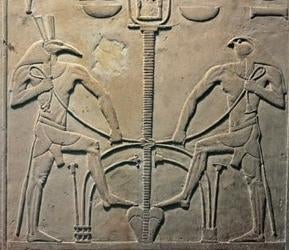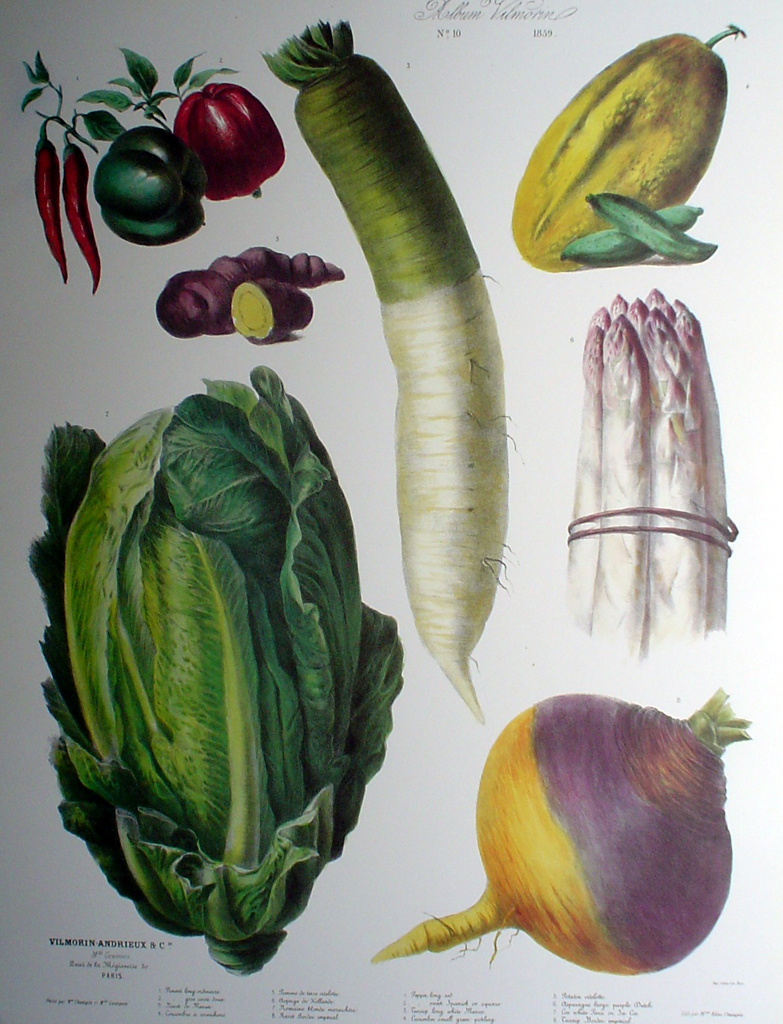When you think about food and sex, it may seem bit a bizarre to link these two together but their end goal is the same: satiation. Pleasure. There is an urge that needs to be met and through with either one–or more–of our orifices, we are able to become full. As experimentation on my part, I will be starting a blog series on food and sexuality in literature beginning in chronological order (as best as I can). So without further ado, let’s go back thousands upon thousands of years ago to the great civilization of ancient Egypt.

For this post, I will be discussing the royal intrigue between two gods, Horus and Set. As you may or may not know, Horus is one of the most important gods out of the entire Egyptian pantheon. Known as the god of the sky and war and hunting, Horus is often depicted with having a human body with a falcon head. According to legend, when the goddess Isis was pregnant with Horus, she had to hide from her brother Set because he was hungry for the throne, even killing her husband Osiris to usurp it. Once Horus came of age, Isis admonished him to protect the people of Egypt from Set’s avarice. In fact, the Eye of Horus is a symbol that represents divine protection in the ancient Egyptian religion. Set, on the other hand, was the god of the desert, disorder, and violence. He’s often depicted with a long snout, as you can see from the image to the right.
According to Papyrus Chester Beatty I, the conflict between Horus and Set happened to be a series of bouts, such as when they transformed into hippopotamuses and submerged themselves into the water to see who could last the longest, to Set removing Horus’s eyeballs as he slept. Don’t worry, Horus was able to regain his eyes with the help of a mistress named Hathor. But the story takes an erotic turn soon afterwards:
Now afterward, (at) evening time, bed was prepared for them, and they both lay down. But during the night, Set caused his phallus to become stiff and inserted it between Horus’s thighs. Then Horus placed his hands between his thighs and received Set’s semen. Horus went to tell his mother Isis: “Help me, Isis, my mother, come and see what Set has done to me.” And he opened his hand(s) and let her see Set’s semen. She let out a loud shriek, seized the copper (knife), cut off his hand(s) that were equivalent. Then she fetched some fragrant ointment and applied it to Horus’s phallus. She caused it to become stiff and inserted it into a pot, and he caused his semen to flow down into it.
Whoa whoa whoa, wait a second. I warned you the story would get real really quickly. In this scene, we can extrapolate that virility is synonymous with dominance. Set tries to insert himself into Horus’ thighs, similar to how a man would ease into a woman, in order to assert his superiority by mounting Horus. When Horus has Set’s semen in his hands, it demonstrates that he has been defiled by another man’s essence, so much in fact that his mother has to cut off the hands altogether. The only way to remedy the situation is for part of his essence–his liquescent power–to come out as well.
Isis at morning time went carrying the semen of Horus to the garden of Set and said to Set’s gardener: “What sort of vegetable is it that Set eats here in your company?” So the gardener told her: “He doesn’t eat any vegetable here in my company except lettuce.” And Isis added the semen of Horus onto it. Set returned according to his daily habit and ate the lettuce, which he regularly ate. Thereupon he became pregnant with the semen of Horus.

Lettuce. Out of all foods, why would it be lettuce instead of chocolate or oysters, which are said to stir sexual arousal? In ancient Egypt, lettuce was not considered a part of one’s salad but rather, an aphrodisiac. The Egyptian god of fertility, Min, was said to have had an extreme love for lettuce. According to a text on the Edfu Temple, the lettuce was able to help Min relentlessly perform.* On the relief of his funerary temple, Ramses III partakes in a harvest festival in honor of Min. A procession of priests carry large stalks of lettuce–phallic symbols, tall and erect. In fact, if one were to cut a lettuce leaf in half, a whitish, milky substance would ooze out of it. Care to guess what that reminded people of? Furthermore, lettuce is replete with vitamin A which bolsters both the male and female reproductive systems. For women, the vitamin stimulates our cycles and for the men, it assists with sperm production, and of course, virility.
Towards the end of the story, both Horus and Set appear in front of Thoth, who was another deity known to handle godly disputes:
Said Set: “Let me be awarded the office of Ruler … for as to Horus, the one who is standing (trial), I have performed the labor of a male against him.”
In other words, Horus cannot be ruler of Egypt because he had been covered in sperm like a woman. Because Set has performed a “labor of a male against him,” Horus cannot rule over anyone. He had already been ruled.
Horus then took an oath by god as follows: “All that Set has said is false. Let Set’s semen be summoned that we may see from where it answers, and my own be summoned that we may see from where it answers.”
Then Thoth, lord of script and scribe of truth for the Ennead, put his hand on Horus’s shoulder and said: “Come out, you semen of Set.”
And it answered him from the water in the interior of the marsh. Thoth put his hand on Set’s shoulder and said: “Come out, you semen of Horus.”
Then it said to him: “Where shall I come from?”
Thoth said to it: “Come out from his ear.”
Thereupon it said to him: “Is it from his ear that I should issue forth, seeing that I am divine seed?”
Then Thoth said to it:”Come out from the top of his head.”
And it emerged as a golden solar disk upon Set’s head. Set became exceeding furious and extended his hand(s) to seize the golden solar disk. Thoth took it away from him and placed it as a crown upon his (own) head […]
And so Set took a great oath by [the] god as follows: “He shall not be awarded the office.”
It’s one thing to have semen caught in your hands, but to actually ingest becomes of grave consequence. Unbeknownst to Set, he ate lettuce along with Horus’ semen, where it was held in his body as in a woman’s body for conception. In this myth, lettuce, an ancient aphrodisiac, is the tool used to submit Set to Horus’s power. It is not through might or political acumen that Horus regains the throne, but rather, through his loins. Through his phallus, Horus was able to give Set his comeuppance but it was by food that the plan was carried to completion. From this tale, we see how food and sexuality are two sides of the same coin, working alongside one another to bring out a certain purpose–in this case, political ascendancy.
*See K. Annabelle Smith’s piece, “When Lettuce was a Sacred Sex Symbol,” at Smithsonian.com.
Image courtesy of KerrisdaleGallery.com. “Botanical No. 10, 1859: Cucumber Asparagus Turnip Pepper Potato Lettuce.” Vilmorin Seed Co. Lithograph.




